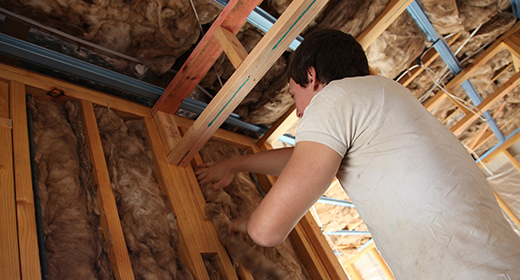The government must commit £10 billion now to bring the nation’s million worst insulated private rented homes to energy efficiency performance level “C” by 2028, a campaigning group of city councils urges today.
Deprived areas, particularly cities in the north, are the nation’s worst cold beds of leaky lodgings, the group’s analysis finds. That compels Britain’s poorest people to waste the biggest share of their income heating the open air.
England’s biggest county fares worst. 63% of Yorkshire’s homes fail to meet an EPC threshold of grade “D” for acceptable energy performance. In the West Midlands, it’s 61%, and 59% in the North West.
The South fares only a little better. Around half of London’s 3.6 million households suffer heat leaks to a similar extent. In the wider south east, the share rises 54%.
“The Government needs to act quickly if we have any hope of reaching government EPC targets, now just five years away”, said SIGOMA’s chair Sir Stephen Houghton.
The municipal alliance today lays out policy priorities essential, say town hall chiefs, if every UK household is to reach a baseline EPC “C” rating by 2029:
- Invest £10 billion to help support the most deprived households in improving energy efficient homes;
- Create a dedicated funding pot to help councils fund Net Zero projects;
- Cut out time-consuming bidding rounds, by funnelling block sums to Combined Authorities and devolved bodies;
- Commit enough funding to lift all housing to EPC level “C” by 2035, and by 2028 for private rented accommodation.
- Increase funding provided through the Air Quality Grant Scheme to assist local authorities in tackling air pollution
Said Sir Stephen: “Our proposal sets out a clear strategy giving our members the tools and support to uplift housing in some of the most deprived areas of the UK, putting us on a path to achieving Net-Zero objectives.
“They’ll also ease the cost-of-living crisis for Britain’s poorest deprived households and communities.”
The Conservatives’ last manifesto promised £9.2 billion to improve efficiency ratings of all UK homes. That’s a long way short, says SIGOMA, of the £300 billion bill calculated by real estate advisors Savills as the cost of decarbonising the nation’s dwellings.
In September 2020, the energy ministry launched a review designed to increase trust in EPCs. 35 revisions were included in its November 2021 report.
From June 2025 new homes will face tougher rules. But the Future Homes Standard is silent on retrofitting the existing mass of Britain’s housing.




